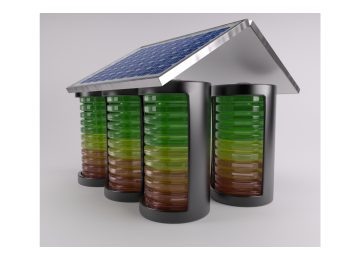Greenwashing in ads may just find itself getting a quick exit.
The Advertising Standards Council of India (ASCI) has proposed guidelines to bring transparency and accountability to environmental claims-based advertising.
The draft guidelines focus on green claims made in ads. These include positive impact on the environment, carbon offset, and biodegradable claims.
What do the guidelines say?
• Absolute claims such as ‘environment-friendly’, ‘eco-friendly’ ‘sustainable’, and ‘planet-friendly’ must be supported by a ‘high level of substantiation’
• Advertisers must also specify whether the environmental claim refers to the entire product, packaging, or service
• In the case of carbon offset claims, advertisers must disclose the period for reduction in emissions (two years or longer)
• Ads also cannot make carbon offset-related claims that represent an emission reduction that is required by law
• Green claims must be based on the ‘full life cycle’ of the advertised product or service.
• Claims that are based on only part of an advertised product or service’s life cycle must not mislead consumers about the total environmental impact of the product or service
• Brands cannot mislead consumers about the environmental benefits by highlighting the absence of a damaging ingredient if it is not usually found in competing products.
• Certifications and Seals of Approval should make clear which attributes of the product or service have been evaluated by the certifier, and the basis of such certification provided. Certifications and seals used in an advertisement should be from a nationally or internationally recognized certifying authority
• Visual elements in an ad should not give a false impression about the product/service being advertised
• Advertisers should refrain from making aspirational claims of their future environmental objectives unless they have developed actionable plans
• For claims that the product is compostable, biodegradable, recyclable, non-toxic, free-of, advertisers should qualify the aspects to which such claims are being attributed
• They should be backed by reliable scientific evidence to indicate if the product will break down within a reasonably short period after disposal. They should also state whether the product is free of elements that can lead to environmental hazards
Resources:
Manisha Kapoor, CEO and Secretary General, ASCI said, “ASCI’s draft guidelines on Environmental/Green Claims are a crucial step to ensure that consumers who wish to support green brands have the correct information to make an informed decision. These guidelines set a standard for advertisers and aim to foster a culture of transparency and authenticity in advertising in the best interest of the consumers. We encourage all stakeholders, including consumers, industry, civil society members, and experts, to provide their feedback on the draft guidelines to enable us to sharpen and strengthen them.”
It must be noted that the Global Governance initiative, in its paper on The Problem of Greenwashing in India: Policy Review, said that the consequences of greenwashing can be detrimental to both the environment and consumers. Greenwashing has become a prevalent issue in India, particularly in sectors such as FMCG, textiles, and home appliances.
Meanwhile, the draft guidelines will be open for feedback and consultation till December 31, 2023.












